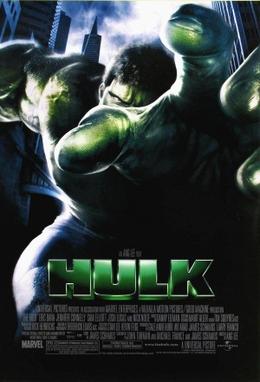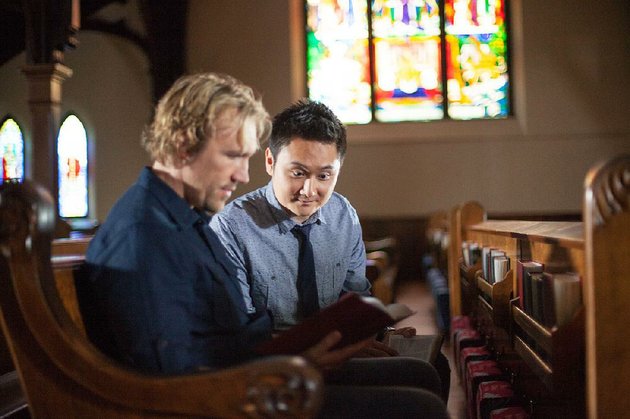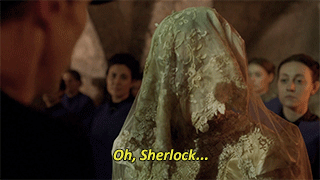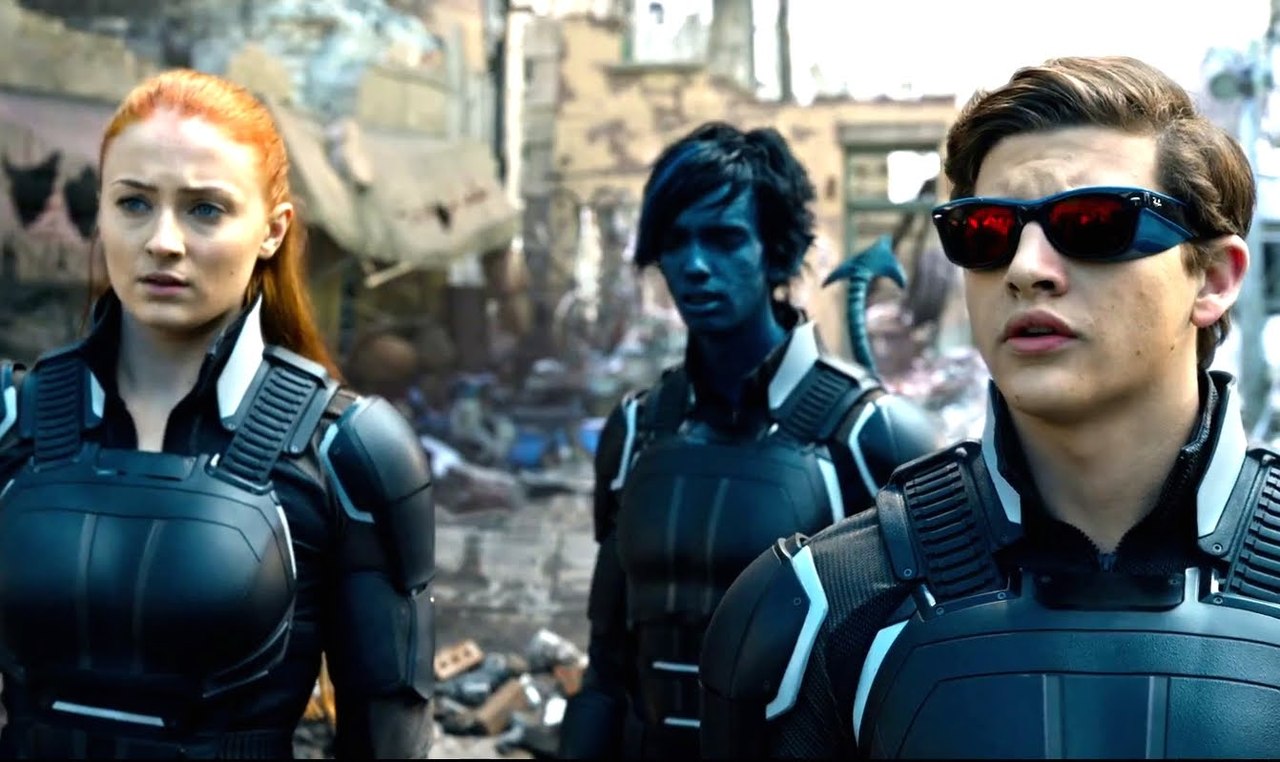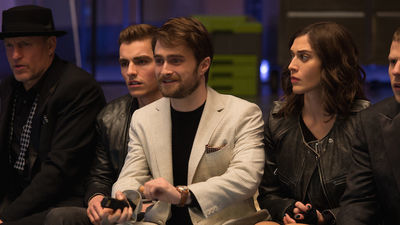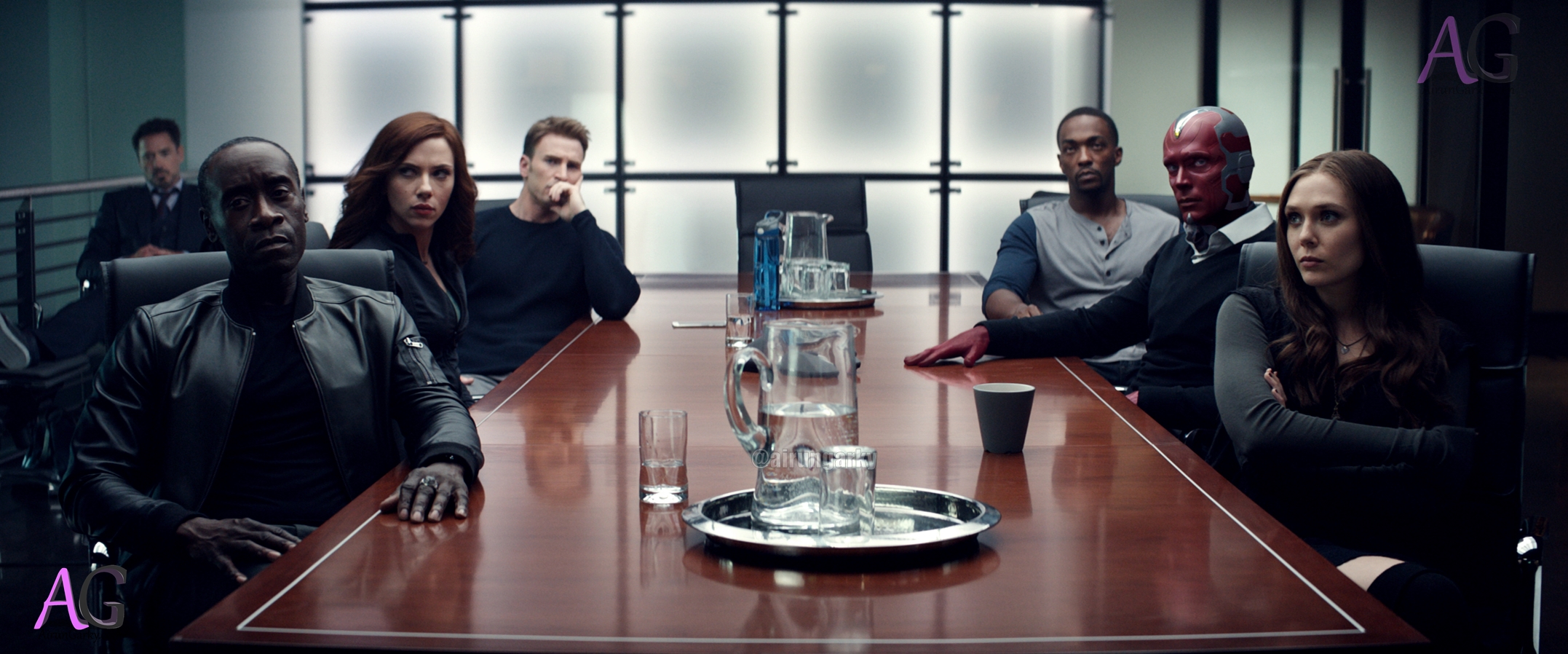GRACE UNPLUGGED
Grace Unplugged is a rarity in Christian films: a movie that touches on sin and temptation that comes to both believers and non-believers. The film isn't too afraid to acknowledge that outside the safe confines of the Church, even the strongest believer can be lured to leave the Cross when 'crossing over'. It isn't perfect, but it is in terms of Christian cinema a firm step in the right direction.
Grace Trey (AJ Michalka) is the daughter of Johnny Trey (James Denton). Johnny had a big hit song, Misunderstood, which catapulted him to the top of the charts. Misunderstood, however, was Johnny's first and only hit, his career sinking soon after. Johnny had a religious conversion and embraced Christianity. Now a music director at a church, he is content in the Lord and has no desire to branch out of the safe confines of worship music. In fact, despite what I imagine are offers to venture into the Christian music market, Johnny won't go beyond his own home church.
Grace, however, does want to go and venture into The World. She also might be wanting to get away from Johnny's more strict world, chafing under his benevolent control (for example, going after her for not filling the car up). Her own variations on worship music (such as belting out praise & worship during service) doesn't sit well with Johnny either.
As it so happens, Grace somehow manages to do her own cover of Misunderstood (my memory is a big vague as to whether she was talked into it or did it on her own). Regardless, Misunderstood 2.0 attracts attention from the secular music scene, particularly Johnny's old producer, Frank 'Mossy' Mostin (Kevin Pollack). The idea of getting the daughter to do a cover of her father's hit song is too enticing for Mostin, and the lure of success on her own is too strong for Grace too.
 |
| If you recognize the song, You Might Be A Christian |
She finds herself enthralled when a date is set up with Jay Grayson (Zane Holtz), star of the teen soap Thunder Falls. Already she is starting to compromise her beliefs: though there is no intimacy (and to be honest I don't remember what the exact reason she didn't was), just the idea of her going to his place is already enough to raise eyebrows. Grace is talked into this and a lot of other things by Mostin, insisting that being seen with Grayson will be good for her career.
One thing that might not be is with regards to her songwriting: namely, she has no experience in songwriting despite whatever impressions she may have left. At the recording company, the only person who can understand her plight is Quentin (Michael Welch), an intern who is about the only Christian at the company. He's not just a Christian, he's a committed Christian (he does tell Grace that it's so nice to have someone else there who can be a light to this world, an idea which Grace isn't too preoccupied with).
Another member of Mostin's bevvy of pop stars, Renae Taylor (Kelly Thiebaud), gives Grace a most curious bit of advice: your body is your biggest asset. Grace now appears more lost in this world, with Quentin being the only one she can open up to.
With regards to Quentin and Grace, you know where it's going.
Mostin keeps pushing Grace to sing a more risqué song, One Fast Night, whose lyrics aren't overtly questionable but that to Grace seem a bit too much. Despite the money Mostin has laid out (down to having a crew all ready to both record and go on tour), Grace leaves it all behind for the safe confines of Birmingham, where she and Johnny reconcile, even singing a new song for the congregation: All I've Ever Needed.
Two Years Later, Grace finds that Mostin found a new girl to be his new pop-queen (and sing One Fast Night), while she, now engaged to Quentin, performs as the opening act for Christian singer/songwriter Chris Tomlin, where she's also joined by Johnny Trey, dueting on a wider stage.
I thought more and more on Grace Unplugged and began to wonder whether the various messages behind it were good or not. Allow me to get a little theological here.
In contemporary Christian thought there is the struggle between being IN The World but not PART OF The World. In other words, while Christians cannot (and perhaps should not) separate themselves wholly from the culture around us, Christians should not be active participants in aspects of that culture that would go against Biblical principles. For example, a Christian would be encouraged to participate in sports, but not to go to a bar or strip club after the game. Maintaining that balance between The Word and The World is what causes many Christians various dilemmas.
Grace Unplugged touches on those aspects with Grace; for example whether she should sing songs that while not overt calls to sin are perhaps skimming the edges of sin. There is a rich source of drama here, and we need only look at some figures in Contemporary Christian Music (CCM for short) to see how their own decisions affect their careers and personas.
Michael W. Smith and Third Day have had 'crossover' hits, but they've been pretty happy to stay within CCM. Amy Grant, once the darling of the CCM scene, has ventured further out to where she's almost all 'secular' (and endured controversy when her first marriage collapsed under accusations of infidelity). Another music group linked with CCM, Jars of Clay, had a hit song in the 'mainstream' music world with Flood. They have come under fire over whether their lead singer, Dan Haseltine, appeared to come out in favor of same-sex marriage, a volatile issue within Christian circles.
I won't even go into my own divided views on Switchfoot.
In any case, this push-pull between the confines of The Church and The World are I think great sources of conflict. Grace Unplugged, as written and directed by Brad J. Silverman, I think went closer to the 'the World isn't a place for the Christian' worldview because rather than have Grace grow as both a woman and a Christian, she opted to essentially run back to her parents and the safety and security of the more sheltered/bubbled-in Christian world.
I think they could have delved more into that conflict rather than have a safe way out, robbing the viewer (Christian and non) a chance to see that conflict grow and how someone brought up in the Church would handle this pressure.
Grace comes across a bit too naïve to be real, as if she wasn't sure what went on out in the world. Johnny, for his part, did himself no favors, coming across as perhaps too strict and overprotective. Part of me wants a film where Christians understand the world they live in is full of sin, temptation, darkness, and that they are not immune from falling into sin, temptation, and darkness. If they didn't, what would be the point of grace and redemption?
Still, I think this is more the blame of the screenplay than of Michalka and Denton, who gave very good performances of the parts written. Michalka in particular was adept at showing Grace's genuine fear at performing in public without the safety net of the church band. Yes, she was naïve, but she was also filled with anger at the restrictions placed on her, doubtful whether she was doing the right things. Michalka showed herself a very good actress in bringing these conflicts to the forefront.
Another standout is Welch as Quentin. His character comes across as someone who is genuine in his faith without being an idiot or unaware of how the world works. In turns sweet and caring but also honest in his assessments of the industry and those it swallows up, it's a pity that Welch (best known as Mike the Human in the Twilight Series...excuse me, SAGA) hasn't broken out more.
Grace Unplugged is a strong calling card for Welch, who I imagine can do more, as well as for Michalka. The film is better than most of the Christian genre, but the fact that Grace ultimately went back to safety rather than try and fight for herself and her Lord, to me, struck a bit of a sour note, which is why I'm downgrading it just a touch.
Still, I thought well enough of Grace Unplugged to recommend it to people who are forgiving of a flawed film that has some good acting, good songs, and doesn't treat Christians as either idiots or bigots. All in all, again a good step forward.
DECISION: C+





